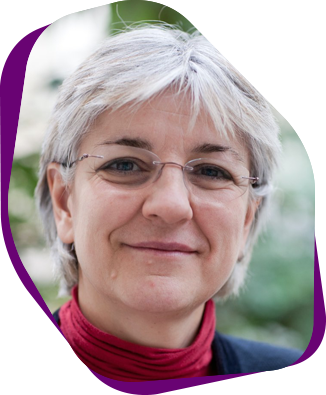Loading


The INSERM LIMICS Team is a public research team of the French National Institute for Health and Medical Research (INSERM), referenced as UMR_S 1142, and is also affiliated to the universities “Sorbonne Paris Nord” and “Sorbonne University”). The LIMICS lab is specialized in medical informatics and knowledge engineering for e-health, mainly in the fields of 1) terminologies and ontologies in healthcare, 2) semantic Electronic Healthcare Reports (bindings of terminology and data structures), 3) semantic mediation and integration, 4) clinical data warehouses and information quality, 5) artificial intelligence and decision support systems, 6) public health systems for surveillance and epidemiology, 7) visual presentation of biomedical data and knowledge. The current synthesis of the group consists of 39 permanent people, 9 post-doc and engineers and 18 PhD candidates. It constitutes a multi-disciplinary team of Computer Scientists, Physicians, and Pharmacists. The team has strong connections with APHP and Rouen hospital which provide opportunities for multiple collaborations with physicians / clinicians for the development and evaluation of research products.
The LIMICS has proposed innovative computerized methods to manage data and complex knowledge in healthcare and to develop decision support systems for improving biomedical research, care quality and patient safety. The general approach is characterized by the inclusion of the semantic dimension (conceptual knowledge, conceptual data representation) for the coding and sharing of diverse types of information from heterogeneous sources, the extraction of new knowledge and the introduction of that knowledge into computer systems capable of reasoning to provide support for medical decisions for maximal benefit to the patients.
The LIMICS team has a large expertise in semantic interoperability, acquired for many years in national and European projects (DEBUG-IT, EHR4CR, SemanticHealthNet, ASSESS-CT, EHR2EDC and C3-Cloud). Some members have been actively involved in standard organizations (CEN and ISO, IHE, DICOM, HL7 and CDISC, Snomed International, Joint Advisory Group (JAG) of the IHTSDO/WHO harmonization process). The main products of the team are ontologies in several medical fields, tools and services for the automatic indexation and information retrieval in multi-terminologies/ontologies context. Besides this, LIMICS is involved in several projects of information extraction from the unstructured, textual part of the APHP clinical datawarehouse (CDW) containing more than 50 million health records, each of them having a clinical or research purpose: phenotype extraction from mammographies, detection of osteoporotic fractures, detection of offlabel drug use, etc.
Marie-Christine Jaulent is a research director at the French national medical research institute (INSERM). She has a PhD degree in computer sciences, option Artificial Intelligence, in 1986. Since 2002, she leads a 60 people-large public INSERM research team composed of computer scientists, physicians, pharmacists, linguists (UMRS1142 – LIMICS) working in knowledge engineering in healthcare. Her current research activities are in the fields of 1) terminologies and ontologies in healthcare, 2) semantic Electronic Healthcare Records, 3) clinical data warehouses and information quality, 4) decision support systems for e-health. She has been involved in several EU R&D projects where the LIMICS brought expertise in IT solutions for semantic interoperability between information systems in healthcare


Jean Charlet is originally a computer scientist from École Centrale de Paris, France. He obtained a Ph.D. in Computer Science from the Paris 6 University in 1989. He is full-time researcher at the Assistance Publique—Hôpitaux de Paris and works with the INSERM U1142 research laboratory on “knowledge engineering in e-Health” in Paris. His main domains of interest include methods to build ontology from textual corpora, formal ontologies, Electronic Health Record and annotation on the EHR, and epistemological reflections about structuration of medical knowledge. Since 2013, he is co-editor of the Knowledge Representation and Management section of the IMIA Yearbook of Medical Informatics. Main application domains concern development of Knowledeg organization system (KOS) for semantic annotation in medicine (emergency care, psychiatry, and neurology). Recent work focuses on data interoperability standards for data sharing between EHR and clinical research (EIT-Health EHR2EDC project). Scientific production: 37 MedlineTM-indexed publications, 4 other articles in international journals, 33 other communications at international conferences, 14 articles in French journals, 5 international book chapters. Young researchers supervision: 9 PhD, 4 post-doc.
Fethi Ghazouani is currently a Postdoctoral Researcher at INSERM U1142. The research work focuses on the Artifical Intelligence and computer vision. He received the Ph.D degree in computer sciences, option Signal, Image, Vision (SIV) from the University of Bretagne Loire, IMT Atlantique, in 2018. Since November 2019, he was a Teaching Assistant (ATER) at the Université de Bretagne Occidentale (UBO). His research interests include Artificial Intelligence, Knowledge Representation and Modeling, Machine Learning and Deep Learning for semantic image interpretation.


Mirna El Ghosh is a Post-doc researcher at INSERM U1142 research laboratory. She obtained a Ph.D. in Computer Science, field Artificial Intelligence, from INSA de Rouen in 2018. Her main domains of expertise include knowledge engineering, ontology-driven conceptual modeling, ontologies in the legal domain, rule-based decision support systems, and computational linguistics. As a Post-doc researcher at INSA de Rouen, she was involved in two European projects: CLASSE2 (2018-2019) and ASTURIAS (2019-2020). In CLASSE2, the main tasks were (1) building a well-founded legal domain ontology for the international maritime law and (2) implementing an ontology-based system for the traceability of goods in logistic corridors. In ASTURIAS, the main tasks were (1) harvesting a topic ontology from open knowledge graphs for representing old press articles and (2) implementing an ontology-based topic labeling system using semantic similarity measures.
After having completed a Master 2 in Artificial Intelligence at Paris VI (Paris France), I have worked many years as engineer in the world of industry. Throughout my career, I had the opportunity to practice my profession in different business areas covering software development, system and network.
Presently, I am completing a one-year training course at CNAM as Project Manager in documentary engineering. During the end of year internship, I had the benefit of joining the SUOG team where I discovered the exciting world of ontologies in the biomedical field. I am currently working into the team on triple stores and SPARQL queries.

Copyright © 2021 SUOG – Legal notices